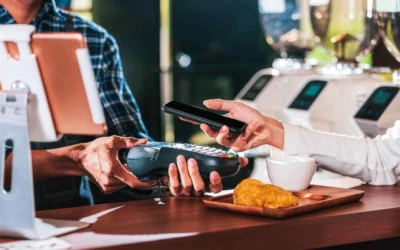With a social media platform that is free for all, restaurant businesses can position themselves as one of the must-visit restaurants without always putting all the money on the ads.
How Social Media Benefits Restaurants
Here are the five benefits of using social media marketing for your restaurant:
- Connecting with customers: Social media allows restaurants to easily connect with customers and build relationships with them. By responding to comments and messages, restaurants can show that they value their customers and their feedback.
- Promoting the brand: Social media is a great way for restaurants to promote their brand and showcase their unique offerings. By regularly posting high-quality content, such as mouth-watering photos of their dishes or videos of their chefs at work, restaurants can attract new customers and encourage existing customers to return.
- Gathering customer feedback: Social media is an important tool for gathering customer feedback. By monitoring comments and reviews on their social media pages, restaurants can quickly identify areas for improvement and make changes to enhance the customer experience.
- Managing customer service: Social media can also be used for managing customer service. By responding to customer inquiries and complaints quickly and efficiently, restaurants can show that they care about their customers and are committed to providing excellent service.
- Staying up-to-date: Finally, social media is a great way for restaurants to stay up-to-date on industry trends and innovations. By following other restaurants, chefs, and industry experts on social media, restaurants can stay on top of the latest trends and incorporate them into their own offerings.
6 Best Social Media Strategies for Restaurants
Let’s look at the top 6 social media strategies you can try for your restaurant:
1. Choose the Right Platforms
Not all social media platforms are equally effective for promoting a restaurant. Choose the platforms that are most popular among your target audience and that are well-suited to showcasing your food and services. For example, platforms like Instagram and Pinterest are great for sharing beautiful photos of your dishes, while platforms like Twitter and Facebook are better for engaging with customers and promoting special offers.
2. Post High-Quality Content Regularly
To attract and retain followers, it’s important to post high-quality content regularly. This can include photos of your dishes, behind-the-scenes footage of your kitchen, or videos of your chefs in action. Mix up the types of content you post to keep things interesting, and make sure to use hashtags and tags to make your posts more discoverable.
3. Engage with Your Followers
Social media is not a one-way street. To build a strong online presence, it’s important to regularly engage with your followers. This can include responding to comments and messages, asking for feedback, and sharing user-generated content. By showing that you value your customers and their opinions, you can build loyalty and attract new followers.
4. Offer Exclusive Deals and Promotions
Social media is a great way to offer exclusive deals and promotions to your followers. This can include discounts on popular dishes, special offers for first-time customers, or contests, and giveaways to reward your loyal followers. By regularly offering unique and exciting promotions, you can encourage customers to follow your social media accounts and visit your restaurant more often.
5. Test Consistently
By regularly testing different elements of your social media content and campaigns, you can determine what works best for your restaurant and your target audience. This can include testing different types of content, such as videos, photos, or text-based posts, as well as different headlines, captions, and hashtags. Testing can also help you determine the best times to post, the optimal length of your posts, and the most effective call-to-action.
6. Monitor and Analyze Your Performance
Finally, it’s important to monitor and analyze your performance on social media. Use tools like Google Analytics or Facebook Insights to track your engagement, reach, and conversion rates, and use this information to refine your strategy and improve your results. By regularly tracking and analyzing your performance, you can make sure you’re getting the most out of your social media efforts.





